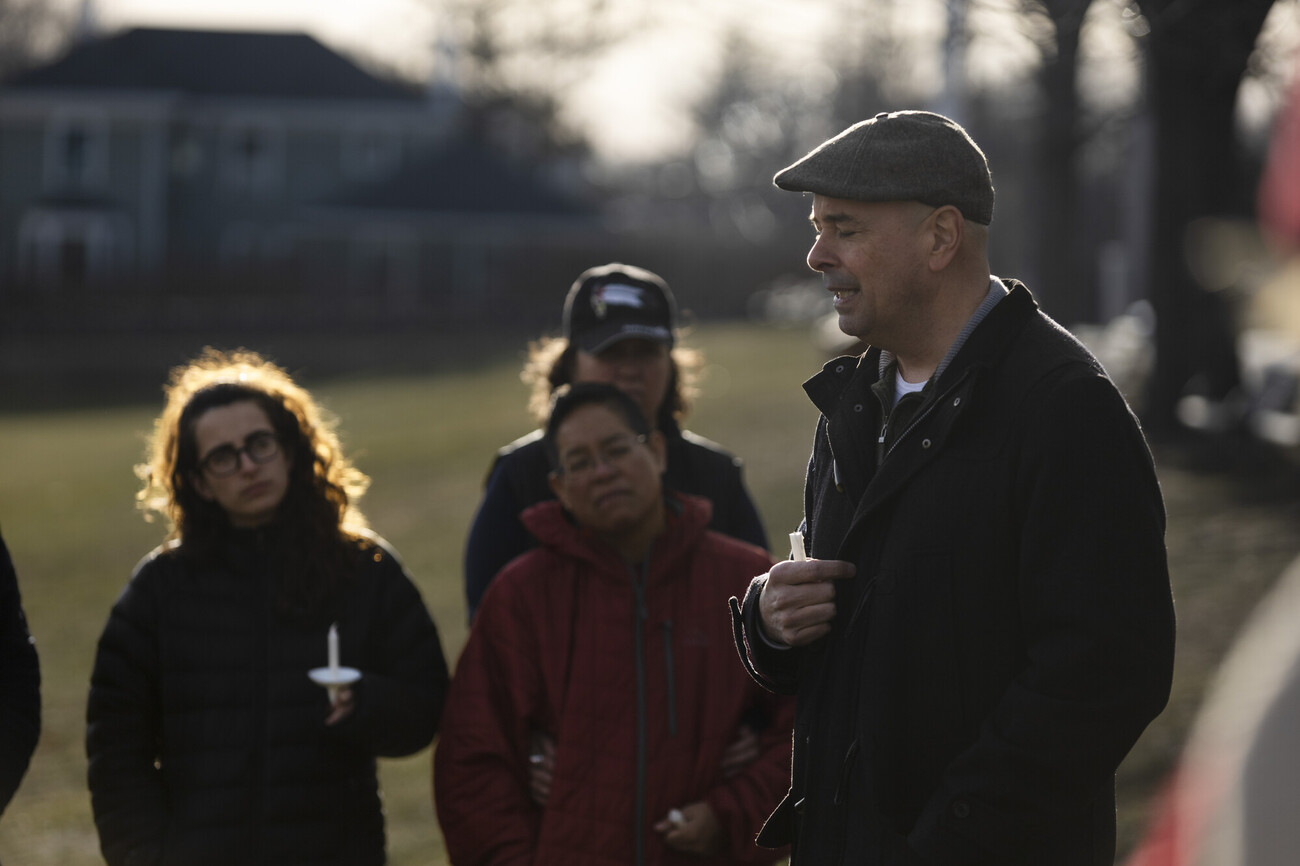Roughly two dozen Marblehead residents gathered at Seaside Park Sunday afternoon for a vigil honoring the life of Tyre Nichols. The effort was led by the town’s Task Force Against Discrimination.
Nichols was a 29-year-old Black motorist pulled over for alleged reckless driving on Jan. 7 by Memphis police and violently beaten. He died in the hospital three days later.
On Jan. 27, video footage was released by the city of Memphis that showed police officers kicking, punching, and beating Nichols as he pleaded for them to stop. Five police officers have been charged, two additional officers were relieved of duty, and three fire personnel who arrived on scene were also fired.
Almost immediately following the video release, Police Chief Dennis King, who is the Ex-officio member of the Task Force Against Discrimination, spoke with his officers about Nichols’ murder, and vowed to have each of his officers watch the video, so that they can further their conversations and actions on police brutality and race in their own department.
He spoke at the vigil on Sunday.
“The Marblehead Police Department, its leadership, its members, are committed to those conversations around race that make us better, ” King said. “I hope that is what comes through, that there are ways that we can police better, there are ways that we can be held accountable, there are all of these things around policing that needs to have citizen communications.”
King continued to express that his department is committed to social justice causes and continuing to have conversations on race within their own department, and in the community.
“On Saturday morning, I did come early in the morning after the release of the video to be able to speak with my overnight officers, to be able to speak with my daytime officers and talk to them about the necessity to watch the video. It will be the worst thing that we perhaps will hopefully see in your career, law enforcement officers that perpetrated against someone they were sworn to protect.”
“The Marblehead Police Department, its leadership, its members, are committed to those conversations around race that make us better, ” King said. “I hope that is what comes through, that there are ways that we can police better, there are ways that we can be held accountable, there are all of these things around policing that needs to have citizen communications.”
Pastor James Bixby of Clifton Lutheran Church led the vigil, and opened by speaking on the wide arrange of motions that were felt by Nichols’ murder, and why Black lives continue to be taken.
“I know many of you have cycled through so many emotions, from horror to disappointment, sadness, maybe to powerlessness,” said Bixby. “Maybe you’re filled today with a kind of anger that’s righteous, maybe it’s the kind of energy that compels you to do something, anything, to ask why is that we continue to gather again and again in the same fashion to ask ourselves why black and brown bodies seem to always be the victim of violence in this society we live in?”
State Rep. Jenny Armini also spoke at the vigil, and wanted those in attendance to take away something from the words spoken at the vigil back to their daily lives and offered a quote from health anthropologist Paul Farmer.
“‘The idea that some lives matter less is at the root of all that is wrong with the world.’ I want us to sit with that idea and take it back to our lives, whether it’s at your job, whether it’s in your community service, and use it as a lens,” she said. “What we have seen time and time again is violent actions against human beings who matter less to the oppressor. That’s really what our job is moving forward is to fight that every step of the way, so let’s take that idea with us and use it as a lens moving forward that every life matters. Every decision we make moving forward should be with that in mind.”
Pastor Bixby concluded the vigil with a few closing thoughts, asking those in attendance what they can do moving forward to combat racism and police brutality.
“We’re done with the empty thoughts and prayers, we’re on to the what are we going to do about it stage, we’re on to the can we make a difference stage. Are there policies we can enact? Are there things we can do in congress? Is there someone I can vote for? We got to be asking ourselves these questions because enough is enough.”

